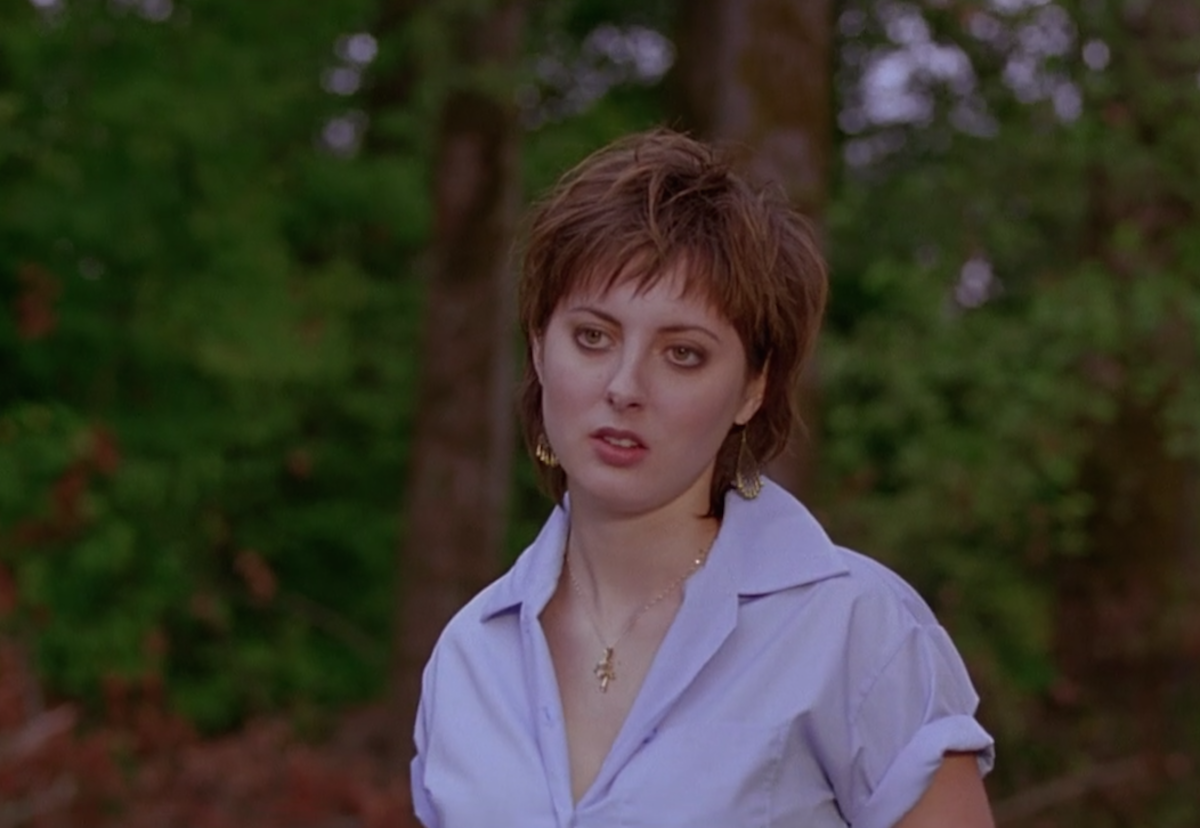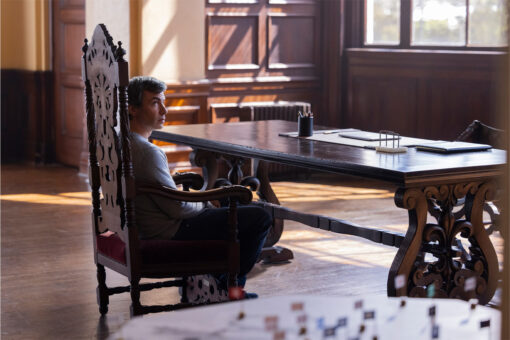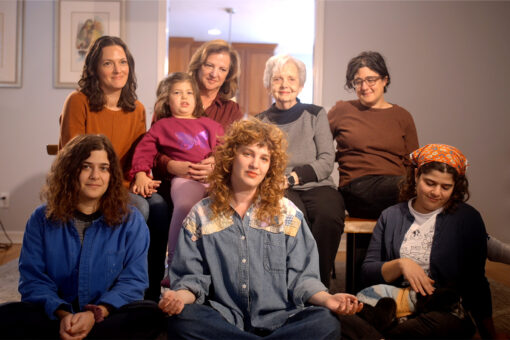Though my roommate and I come from very different backgrounds — she was raised in a Catholic home in Texas while I was brought up in a Jewish household in New Jersey — there is one activity we do enjoy together religiously: watching Sunday night movies on the couch. While we occasionally have trouble agreeing on a film, last month I was pleasantly surprised to find that Saved!, the 2004 coming-of-age flick starring Jenna Malone, Mandy Moore, Macaulay Culkin, and Patrick Fuqit, is currently streaming for free on Amazon Prime.
My roommate had never seen it before, while I had watched it many moons ago, but I figured the movie would satisfy both of our spiritual appetites, as it tells the story of a young Christian girl gang and a singular Jewish girl who stirs up some serious controversy at their Christian high school.
Directed by Brian Dannelly, the film mainly focuses on the character of Mary Cummings, an incoming high school senior played by Jenna Malone who says her faith has taught her that everything is part of God’s plan. Initially Mary is a devout member of the Christian Jewels, the school’s elite group of teen girls helmed by Hilary Faye (Mandy Moore). Hilary Faye is a pious and popular girl who acts as if her brother Roland (Macaulay Culkin), a paraplegic, is a burden, and wants nothing more than to win the affection of Pastor Skip and convert the school’s only Jewish girl, Cassandra Edelstein, who is played by Eva Amurri.
Mary believes her life is perfect until her boyfriend Dean admits he is gay while they are submerged under water in a pool. Out of shock, Mary hits her head and nearly drowns, but a pool boy — who in her delirious state resembles Jesus Christ — jumps into the pool and saves her. She interprets this as a sign from the heavenly father that she must “save” Dean from the sin of homosexuality by having sex with him (albeit without protection). Instead, Dean gets sent to a Christian “treatment” center while Mary winds up pregnant, causing her to lose her faith, fall out of touch with the “Christian jewels,” and ultimately become friends with the school’s biggest social outcast, Cassandra.

From the moment Cassandra comes onto the screen, she is singled out as the rebellious girl the other students should at once fear and try to “save.” On the first day of school, she rolls up to the building in a loud, beat up, purple Mustang, smoking cigarettes, and wearing dark eye makeup, complete with a messy, mullet-like hairdo, chipped nail polish, and combat boots. A voiceover by Mary reveals that everyone in the school, especially Hilary Faye, wants to “save” Cassandra the Jew.
That same day, during a school assembly, Cassandra pretends to experience a spiritual ecstasy and speaks in tongues, ripping her shirt open and nearly revealing her breasts to the crowd before Hilary Faye calls her out on faking it. Throughout the movie, Hilary Faye sees Cassandra’s religious identity as a spiritual problem that needs to be solved, and she will do anything just to show her how cool Christian girls can be.
But Cassandra doesn’t take anyone’s shit. She talks back to Hilary Faye any chance she can get, and she asserts to Roland that if he stares at her ass, she will push him off a cliff. While Cassandra sees through Hilary Faye’s many attempts to save her, she plays along with the seemingly silly antics in an effort to casually undermine her.
Throughout the film, Cassandra comes to represent everything Hilary Faye isn’t — a young woman who is comfortable with her body and sexuality, someone who is accepting of Roland’s disability (the two wind up in an adorable and loving relationship — “He gets me and I get him. I don’t care if he can’t walk,” she tells Mary), and a good friend to pregnant Mary who is rejected by everyone else in her entire community. When Hilary Faye and the rest of the Christian Jewels drop Mary, Cassandra reassures her that she needs a support system and takes her to buy clothes to hide her baby bump. Beyond this, she sticks up for her pregnant friend and goes out of her way to bring Mary together with Patrick, the pastor’s son, a kind boy who doesn’t treat Mary any differently even though she is having Dean’s baby.

Despite being singled out as the school’s outcast and only Jew, Cassandra’s character appears to be pretty secure with who she is. However, we never really see what type of toll the poor treatment takes on her emotionally. After all, Hilary Faye is not just a bully, she’s a straight up anti-Semite. Still, despite the anti-Semitism Cassandra deals with on a daily basis, she takes it all in stride and doesn’t let anyone else’s view of her or their incessant desire to “save” her prevent her from being who she is — a feminist, and a kickass Jewish girl.
Cassandra is not a completely perfect ally — at one point in the movie, she takes old photos of Hilary Faye from fat camp and harshly blasts them around the school. But ultimately, Cassandra shows us what true friendship looks like no matter what one’s religion may be, while Hilary Faye shows us what following faith blindly can do to teenagers. Even when Hilary Faye ultimately breaks down at the end and runs her van into the large Jesus statue outside of the school, Cassandra lends her a literal hand and says, “Don’t worry, I won’t bite.”
Fifteen years later, Cassandra’s character mostly holds up, representing the kind of strong Jewish female heroine we still need today.



